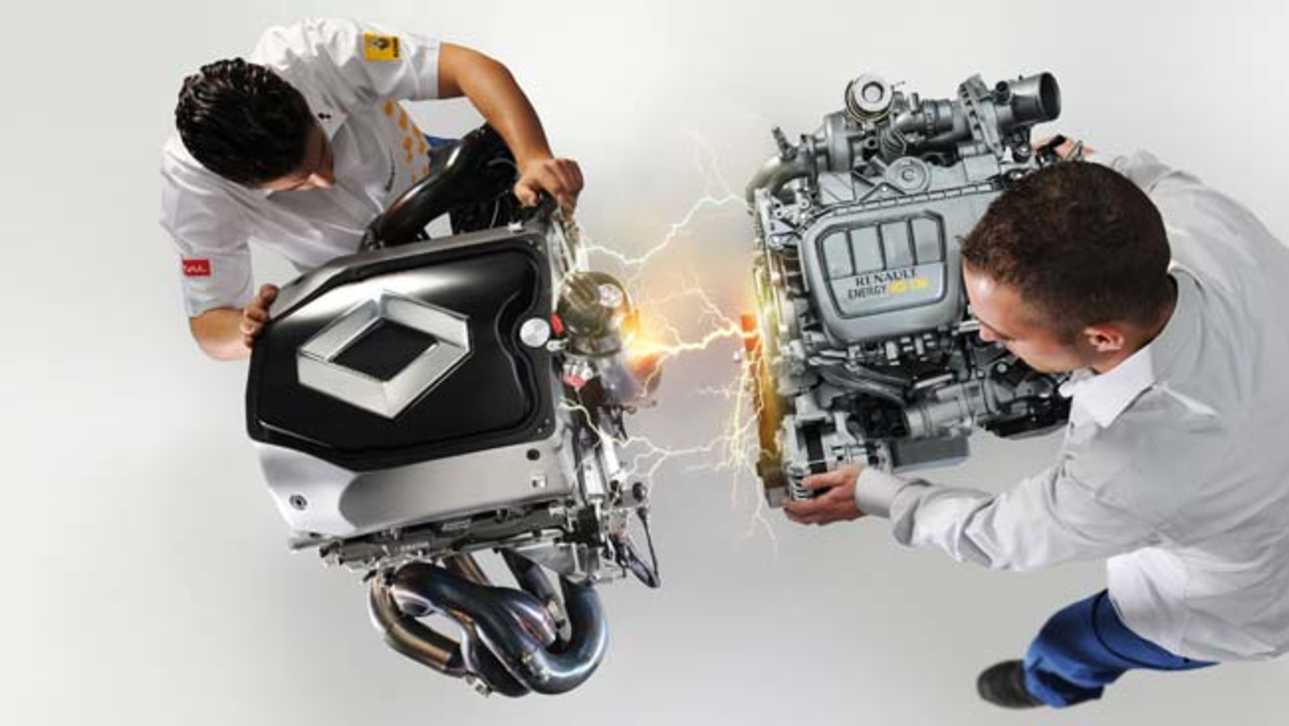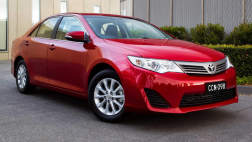Baby turbocharged engines are springing up around the world, with Fiat, BMW and Mercedes-Benz already committed to tiny three-cylinder power plants.
Now Renault says it is tapping its Formula One technology for the engines it will soon be using in the Clio, Megane and other models.
Grand prix racing downsizes to 1.6-litre V6 turbocharged engines in 2014 with battery-electric boosting from Kinetic Energy Recovery Systems, but Renault is also working on plans to recover exhaust heat to boost power in F1 and efficiency in road cars.
"There are some direct connections between Formula One and road cars. We have a more shared view of the technology we are developing," the head of Renault's F1 engine operations, Remi Taffin, tells Carsguide.
He says road cars have already benefitted from the friction-reduction work in F1, especially as a fuel-economy measure, and soon it will be about transferring energy-boosting work on both electric and heat recovery systems.
Current F1 cars used battery-electric boosters and there are a range of road cars that have similar technology, including the LaFerrari and McLaren P1 super cars just unveiled at the Geneva motor show.
In future, though, Taffin says electric boosting will allow smaller and smaller engines to be used in cars. They will have a super-economical downsized petrol engine with a KERS boost for overtaking.
On the heat-recovery side, Taffin says there is big potential to harness the exhaust energy currently lost completely. This could easily power another energy storage system compatible with turbocharged engines.
For F1 in 2014, turbocharging means the engines will be downsized to 1.6-litre V6s from today's 2.4-litre naturally-aspirated V8s, yet lap times will be very similar with around 520 kiloWatts despite reducing revs from 18,000 to around 15,000.
Taffin says modern turbocharging is a lot different to the 1980s performance cars that had a reputation for poor reliability and temperamental behaviour.
"It's not just about getting the most fuel-efficient engine. For road cars it's also about reducing pollution," he says. "When you want to optimise the efficiency of an engine they also allow reduced capacity, as we are seeing."
Taffin says as F1 moves deeper into electric boosting it will improve the efficiency of road engines. His division has already been responsible for developing the electric motors used in the baby Twizzy city runabout.
"It's all about energy and heat. And making the car move. Now we try to use electric motors," he says. "It's all getting much closer to road cars. There will be a lot more transfer in the future."




.jpg)


.jpg)
.jpg)





.jpg)
.jpg)






.jpg)


.jpg)


.jpg)

Comments